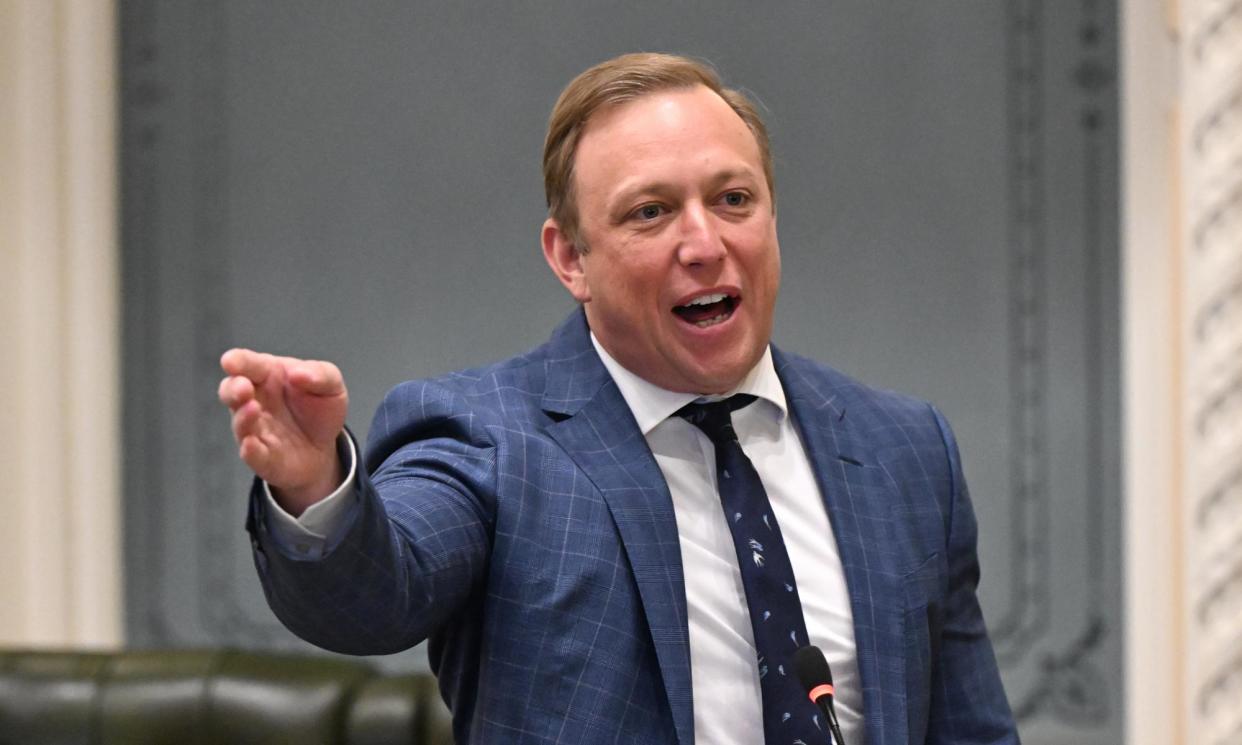Contrasting polls spell out disaster territory and green shoots for Labor ahead of Queensland election

Six weeks out from the Queensland election, two polls dropped this week. They both told remarkably different stories.
Resolve Strategic, published in the Brisbane Times, put Labor’s primary vote across the state at 23%. That’s disaster territory. For context, when Anna Bligh’s Labor government was obliterated at the 2012 election, its primary vote was 26.7%.
The other poll, released by Redbridge, showed some green (pun intended) shoots for Steven Miles’s election strategy, at least in Brisbane and its commuter suburbs. Some Labor MPs fighting uphill battles in city seats left parliament on Thursday – the final sitting day of the term – feeling more buoyant than at anytime this year.
The Redbridge poll, taken between May and August, showed Labor had made little or no inroads in the outer suburbs and regions. The numbers outside Brisbane have been dire in every poll and show no signs of shifting. And the LNP has a viable path to a majority government even if it only picks up seats north of the Sunshine Coast.
Related: Queensland Labor plans state-owned petrol stations as it bids for fourth term
But curiously, the RedBridge snapshot shows Labor support had rebounded substantially in the inner and middle suburbs. Some MPs who might have been on the chopping block – especially those vulnerable to challenge by the Greens – have a newfound spring in their step.
State election contests tend to reflect the “Queensland paradox” – the challenge for major parties to woo voters in Toowong and Townsville with different, and sometimes contradictory, messages.
What the polling shows about this campaign is that anti-Labor sentiment is baked in deeply in the regions. The party’s historical strongholds are working-class cities along the central Queensland coast. It has never lost Mackay or Rockhampton. But both of these places look vulnerable.
Party sources say three bellwether seats in Townsville are as good as lost. Voter sentiment in Cairns, where the party also holds three seats, is not as vicious as it is in Townsville, but still doesn’t seem positive.
To get back in the reckoning – or at least deny the Liberal National party a majority – Labor needs to find a way to make inroads in the regions, and defend its seats there.
It’s hard to guess at what sort of strategy might reverse that trend so late in the term; or at least one that wouldn’t do the party harm in Brisbane, where the government’s 50c public transport fares would be most popular with voters, helping vulnerable MPs.
The policy has been a resounding success on almost every front. Public transport usage is up substantially. Brisbane’s CBD has felt busier than anytime since the Covid shutdown. At least in the city, an election that has felt like a death march for Labor has suddenly sprung to life.
Related: Queensland premier wedged as casino operator falters
But the Greens have focused their campaign on four additional seats – the CBD seat of McConnel, Greenslopes and Miller in the inner south, and Cooper in the inner north-west.
The electoral logic in each of these contests is that Labor cannot afford to finish third, behind the LNP and Greens.
If the Resolve Strategic numbers are right – and the Labor primary vote has dropped to about 23% across the state, from 39.6% at the last election – then these seats, and probably 30 more, look lost.
Even the far more favourable RedBridge numbers show Labor still trails, 45.5% to 54.5%, in two-party-preferred terms across the state.
Labor’s success in Queensland for the past decade has been built on the party’s ability to campaign effectively in Cairns and Carindale.
Some in the party are now questioning whether the smartest tactic may be to ringfence Brisbane, and at least attempt to save some furniture before polling day.
Ben Smee is Guardian Australia’s Queensland state correspondent


